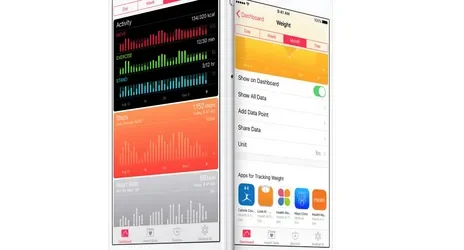In the fast-paced realm of technology, the landscape of mobile operating systems is undergoing a revolutionary transformation. Beyond the well-established iOS and Android duopoly, a new wave of contenders is emerging, promising to redefine our mobile experiences. In this comprehensive analysis, we delve into the intricacies of these next-gen mobile operating systems, exploring their features, security protocols, and user-centric design.
1. HarmonyOS: Bridging the Gap
HarmonyOS, the brainchild of Huawei, stands out as a pivotal player in the next-gen mobile operating system arena. Designed with a vision of seamless integration across a plethora of devices, HarmonyOS promises to bridge the gap between smartphones, smartwatches, and even smart home appliances. Its microkernel architecture ensures efficient resource utilization, contributing to a smoother and more responsive user experience.
2. Fuchsia OS: Google’s Ambitious Endeavor
While Android remains dominant, Google is silently working on its next-gen operating system – Fuchsia OS. Poised to be more versatile and adaptive, Fuchsia OS boasts a modular architecture, allowing it to scale effortlessly across various form factors. The emphasis on security is evident through its capability to receive real-time updates, ensuring users are shielded from emerging threats.
3. Sailfish OS: Navigating Uncharted Waters
Jolla’s Sailfish OS may not be as mainstream as its counterparts, but it has carved a niche for itself in the market. Renowned for its privacy-centric approach, Sailfish OS empowers users with granular control over app permissions and data sharing. The gesture-based navigation adds a layer of intuitiveness, setting Sailfish OS apart in the ever-evolving mobile OS landscape.
4. Aurora OS: The Russian Contender
In the quest for diversity, Aurora OS emerges as a notable contender, backed by the Russian government. This open-source platform is not only tailored for smartphones but also for tablets and laptops. Its focus on privacy and security aligns with contemporary concerns, making it an intriguing alternative for users seeking a robust and reliable mobile operating system.
5. KaiOS: Reshaping Feature Phones
While smartphones dominate the market, KaiOS is making waves by reshaping the landscape of feature phones. Positioned as a lightweight operating system, KaiOS provides a smartphone-like experience on devices with limited hardware capabilities. This innovative approach has garnered attention, especially in regions where affordability and functionality converge.
Security Beyond Conventional Measures
In the era of cyber threats, security is a paramount consideration for users. Next-gen mobile operating systems are raising the bar by implementing advanced security features. From robust encryption algorithms to real-time threat monitoring, these operating systems prioritize safeguarding user data and privacy.
User-Centric Design: A Paradigm Shift
The user experience is no longer confined to mere aesthetics but extends to the intuitive and seamless interaction between users and their devices. Next-gen mobile operating systems are spearheading a paradigm shift by prioritizing user-centric design. Gesture-based navigation, contextual awareness, and adaptive interfaces are becoming the new benchmarks for an enriched user experience.
The Verdict: A Diverse Future Awaits
As we navigate through the diverse landscape of next-gen mobile operating systems, it’s evident that the future holds exciting possibilities. Whether it’s the seamless integration of devices, the ambitious endeavors of tech giants, or the privacy-centric approaches, each operating system brings a unique flavor to the table.
In conclusion, the next-gen mobile operating systems extend far beyond the conventional boundaries, promising a future where innovation and diversity flourish. As users, we stand on the brink of a transformative era, where our choices in mobile operating systems will not only define our digital experiences but also shape the trajectory of technological evolution.



